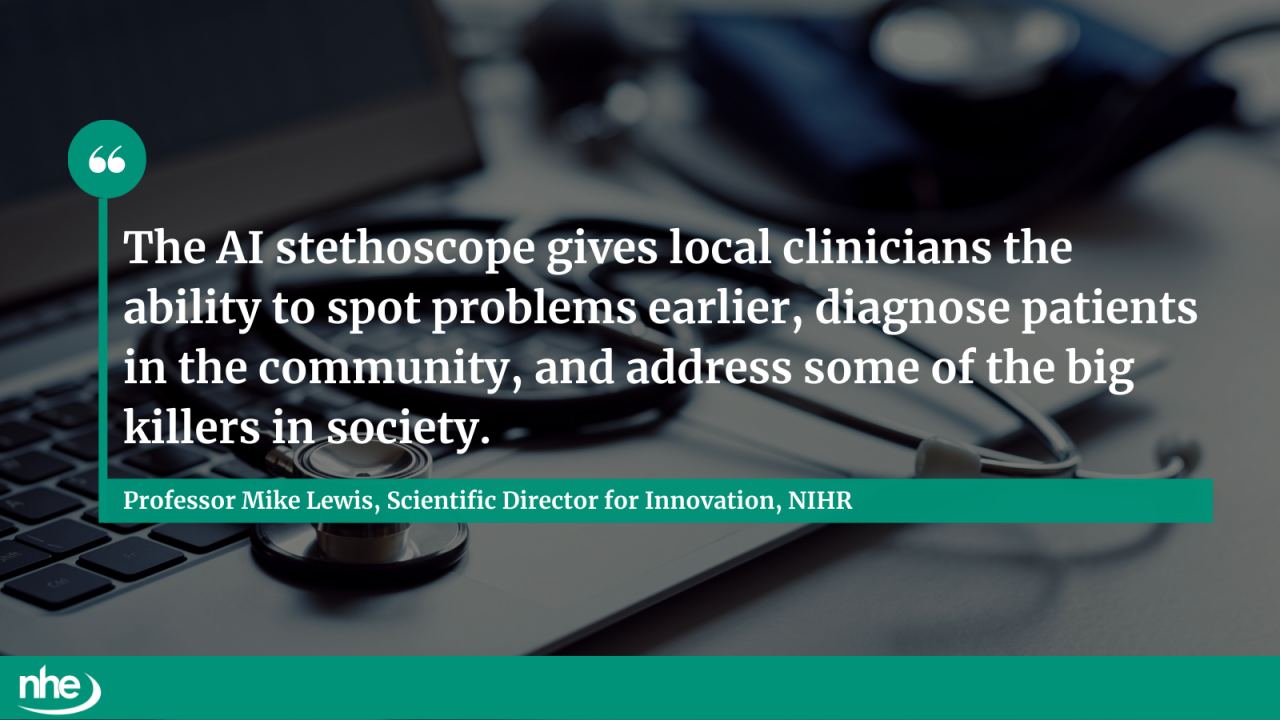Doctors across the UK could soon diagnose heart conditions in just 15 seconds, thanks to a revolutionary AI-enabled stethoscope developed through an NIHR-funded study led by Imperial College London and Imperial College Healthcare NHS Trust.
The device, trialled in over 200 GP surgeries in North West London, has shown remarkable results in identifying serious heart conditions earlier and more accurately. Patients examined with the smart stethoscope were:
- Twice as likely to be diagnosed with heart failure
- 3.5 times more likely to be diagnosed with atrial fibrillation
- Nearly twice as likely to receive a diagnosis of heart valve disease
About the size of a playing card, the device is placed on the chest to record ECG signals and heart sounds. These are securely analysed by AI algorithms trained on tens of thousands of patient records. Results are sent directly to a smartphone, flagging patients at risk of heart failure or other conditions.
The technology was tested on 12,725 patients showing symptoms such as breathlessness, fatigue or swelling – common indicators of heart failure, which affects over 1 million people in the UK.
NIHR Scientific Director for Innovation, Professor Mike Lewis, said:
"This tool could be a real game-changer for patients, bringing innovation directly into the hands of GPs.
“The AI stethoscope gives local clinicians the ability to spot problems earlier, diagnose patients in the community, and address some of the big killers in society."

While the AI stethoscope shows promise, researchers caution that two-thirds of flagged patients did not have heart failure upon further testing. They recommend its use for symptomatic patients, not routine checks, to avoid unnecessary anxiety and testing.
Despite early success, 70% of GP surgeries stopped using the device after 12 months, highlighting the need for better integration into clinical workflows.
The next phase will see the AI stethoscope rolled out to GP practices in Wales, South London and Sussex, expanding access to earlier diagnosis and potentially life-saving treatment.
The study was supported by the NIHR Invention for Innovation programme, British Heart Foundation, Imperial Health Charity, and the NIHR Imperial Biomedical Research Centre.
Image credit: iStock



















